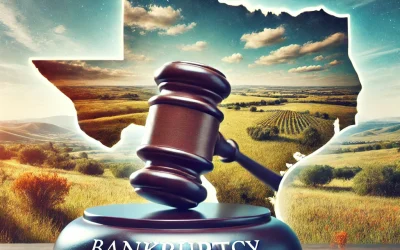Table Of Contents
Your Guide To Bankruptcy and Debt
Facing financial challenges are stressful, but understanding your options can empower you to make informed decisions. We’re here to provide you with the information and support you need to navigate bankruptcy and debt management effectively.
Understanding Bankruptcy
Bankruptcy is a legal process designed to help individuals and businesses eliminate or repay their debts while under the protection of the bankruptcy court. It’s a tool for those overwhelmed by financial burdens, offering a structured path to regain stability.
Types of Bankruptcy
Chapter 7 Bankruptcy: This is known as liquidation bankruptcy, where non-exempt assets are sold to pay off creditors. It’s suitable for those with limited income and significant unsecured debts.
Chapter 13 Bankruptcy: This type allows individuals with a regular income to develop a repayment plan to pay back creditors over 3 to 5 years. It helps retain assets while managing debts.
Managing Debt
Understanding how to manage debt is crucial for financial health. Here are some strategies:
Budgeting: Create a detailed budget to track income and expenses, ensuring you live within your means.
Debt Consolidation: Combine multiple debts into a single loan with a lower interest rate to simplify payments.
Credit Counseling: Seek professional advice to develop a debt management plan tailored to your situation.
Negotiation: Work with creditors to negotiate lower interest rates or settlements on outstanding debts.
Frequently Asked Questions
How does bankruptcy affect my credit?
- Bankruptcy will impact your credit score, but it also provides an opportunity to rebuild it by eliminating unmanageable debts.
Can I keep my assets if I file for bankruptcy?
- Depending on the type of bankruptcy and your specific situation, you may be able to retain essential assets like your home and car.
What is the difference between secured and unsecured debt?
- Secured debt is backed by collateral (e.g., a mortgage), while unsecured debt is not (e.g., credit card debt).
Local Resources
| Resource Name | Description | Contact Information |
|---|---|---|
| Howard Tagg | Tyler Bankruptcy attorney serving Smith County. | Phone: (903) 581-9961 |
| Smith County Courthouse | Location for bankruptcy filings and hearings | Address: 456 Court St, Tyler Texes |
| Financial Education Center | Provides credit counseling and financial workshops | Website: www.financialed.org |
Why Choose Howard Tagg Tyler Bankruptcy Lawyer?
At Howard Tagg Tyler Bankruptcy Lawyer, we are committed to providing compassionate and knowledgeable legal assistance. Our experienced attorneys will guide you through the bankruptcy process with confidence, offering personalized consultations to develop a strategy that aligns with your financial goals.
Contact us today to schedule a free consultation and take the first step towards financial freedom. Let us be your trusted partner on the journey to a brighter financial future. (903) 581-9961




















